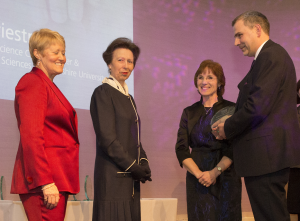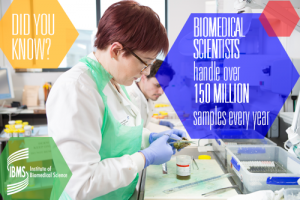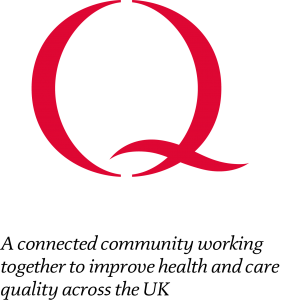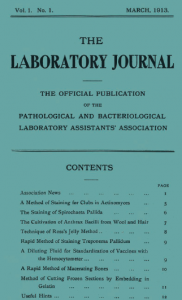March was a busy month for the Biological Sciences team. It started with Ian Davies and Dr Angela Priestman attending the Chief Scientific Officer’s annual conference at the Royal Society in London which brings together scientists and industry experts from all disciplines to discuss the application of science in healthcare. For us, the highlight of this event was being presented with the Chief Scientific Officer’s award for “Excellence in Education Delivery” by HRH The Princess Royal and Professor Sue Hill, Chief Scientific Officer for NHS England. Obviously we are tremendously proud to have received this national accolade, but more so because it reflects our close connections with employers and the importance we place on working with professions to develop learning and teaching that meets their future needs. Continue reading
Continue reading
Author Archives: jid1
What’s in a name?
To celebrate Biomedical Science Awareness Day on Wednesday 19th July, Biomedical Science lecturer Ian Davies reflects upon the identity of the profession and their role in healthcare.
“So what’s that?” “Just like Prime Suspect” “Ugh, you do what?!” – just some of the responses I have had when conversations turn to careers and education. Despite being a biomedical scientist for over 20 years, amongst 23,000 registered by the Health and Care Professions Council (HCPC) within the UK, it can still be difficult to clearly explain what we do and why we do it.
Being a biomedical sci entist brings together a unique mix of laboratory skills, scientific and clinical knowledge and patient-centred professional practice and focuses them upon investigating the body’s response to disease. Clinically this could be in the diagnosis and monitoring of disease, in research though uncovering the detail of disease processes (often at the genomic level) or in the development and production of new diagnostic tools or interventions. It’s not just humans either – our ‘patients’ range from flasks of cell culture disease models to the entire range of species encountered by veterinary laboratories. It goes further still – the transferrable skills of biomedical science graduates are well utilised across a wide range of life science and education professions where their ability to integrate knowledge and apply it in a professional and innovative way are prized assets.
entist brings together a unique mix of laboratory skills, scientific and clinical knowledge and patient-centred professional practice and focuses them upon investigating the body’s response to disease. Clinically this could be in the diagnosis and monitoring of disease, in research though uncovering the detail of disease processes (often at the genomic level) or in the development and production of new diagnostic tools or interventions. It’s not just humans either – our ‘patients’ range from flasks of cell culture disease models to the entire range of species encountered by veterinary laboratories. It goes further still – the transferrable skills of biomedical science graduates are well utilised across a wide range of life science and education professions where their ability to integrate knowledge and apply it in a professional and innovative way are prized assets.
Biomedical Science Awareness Day takes place on Wednesday 19th July, the anniversary of the birth of Albert Norman MBE, founder of the Institute of Biomedical Science. In 1912 Albert was fundamental in the formation of the “Pathological and Bacteriological Laboratory Assistants Association (PBLAA)” which aimed to bring communication, advancements of practice and development of methods and techniques to the growing workforce of “unskilled menials” working in early emerging pathology laboratories. Over 100 years later the association, now the Institute of Biomedical Science, is the focus of our professional identity, the workforce is highly educated and skilled, and its practitioners contribute significantly to the scientific community within the NHS. Continue reading
Quality – from laboratory bench to hospital bedside
Ian Davies, lecturer in Biomedical Science and course leader for Healthcare Science, has just been selected to be part of the Q Community – a diverse and growing community of professionals with experience and understanding of improvement and committed to improving health and care across the UK.
Founded by the Health Foundation in 2013 and supported by NHS Improvement, Q (which stands for Quality if you haven’t guessed) is a community of frontline staff, managers, researchers and policymakers who share a common aim in developing a critical mass to accelerate improvements to the quality of care.
Although a common public perception of healthcare centres around nurses and doctors, as Ian explains biomedical and healthcare scientists play a vital contribution to patient care throughout the NHS: Continue reading


